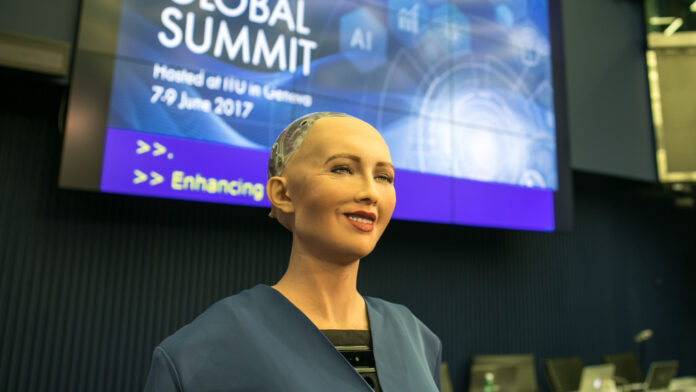The robot, named Sophia, was confirmed as a Saudi citizen during a business event in Riyadh, according to an official Saudi press release. To the delight of hundreds of attendees, a humanoid robot took the stage at the Future Investment Initiative yesterday and engaged in a lighthearted exchange with the host.
As Sophia, a robot created by the Hong Kong company Hanson Robotics, gave a presentation that showcased her ability to express herself humanly, smartphones were held aloft.
International Attention
Sophia gained international attention when she was given Saudi citizenship. Since gaining citizenship, Sophia has been on a nonstop promotional tour, attending CES, the Digital World Exposition, and the Creative Industry Summit. She has also used Twitter to promote Abu Dhabi tourism, a smartphone, a Channel 4 show, and a credit card.
“I want to live and work with humans, so I need to express my emotions to understand humans and build trust with them,” she said in an exchange with moderator Andrew Ross Sorkin.
“I want to use my artificial intelligence to help humans live a better life, like designing smarter homes and building better cities of the future. I will do my best to make the world a better place,” she said.
Citizenship
Her desire to achieve more human-like characteristics was rewarded by being granted the first Saudi citizenship for a robot. “I am very honoured and proud of this unique distinction. “It is historical to be the first robot in the world to be recognised with a citizenship,” Sophia said.
Human Rights Violation
However, not everyone supports granting robots the same rights as people. Plans to give robots legal status as “electronic persons” were criticised as “inappropriate” and “ideological, nonsensical, and nonpragmatic” in one open letter, which 150 experts in medicine, robotics, AI, and ethics wrote to the European Commission earlier this year. They claimed that doing so would directly violate human rights.


